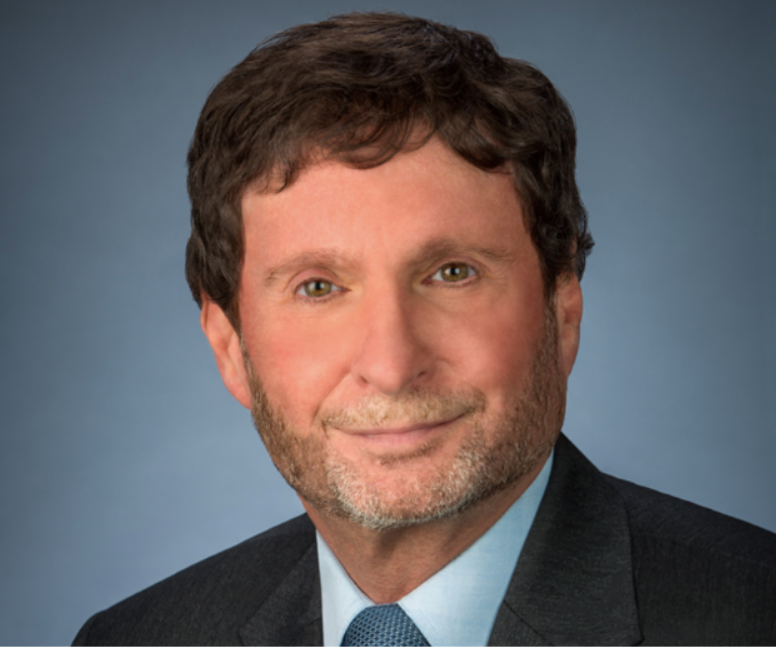Conviction is a scarce resource today. It is easier, even safer, to be agreeable, polished, and felicitous. Most people choose to avoid difficult topics and complicated positions, trading painful truth for affability. But some figures, rare and enduring, live by something deeper. Rabbi Dov Fischer is one of them.
To understand him is to understand a man who never needed to be fashionable because he had already chosen to be principled. Whether standing in front of a courtroom, a congregation, or a law school classroom, he brought the same unwavering posture: do what is right, even if it costs you.
This is not the story of a man who “had it all.” It is the story of someone who never gave anything less than all of himself.
Early Courage, Public Consequence
Conviction is not something people discover late in life. It usually announces itself early. In Rabbi Fischer’s case, it came with handcuffs. During his undergraduate years at Columbia University, he was arrested thirteen times for protesting on behalf of Soviet Jewry. These were not symbolic detentions. He risked expulsion and criminal records for causes others only debated over coffee.
And yet, despite being an Orthodox Jew with politically conservative views, he was elected by his peers to the University Senate. That moment tells you something important. People can smell authenticity. They might not agree with your politics or your faith, but if you speak from principle and live by it, they will respect you. They might even follow you.
The Pulpit, the Pen, and the Public Square
Rabbi Fischer’s rabbinic career began in Jersey City, where he served not just as a congregational rabbi but also as a hospital and police chaplain. He didn’t limit his presence to synagogue walls. He brought Jewish wisdom into places where lives were unraveling and moral clarity was most needed.
His sermons and writings, which today appear in outlets like The American Spectator, Israel National News, and Frontpage Magazine, are known for their sharpness but also their soul. He does not pander. He does not soften edges for mass appeal. And yet his readership spans not only observant Jews, but also unaffiliated Jews, Christians, political independents, and even ideological opponents who simply want to hear a voice that is not afraid.
During a medical hiatus following a lung transplant, his absence was felt across the media landscape. Readers wrote in. Editors received notes asking for updates. The void was real. Not because Fischer told people what they wanted to hear, but because he said what others were afraid to say and said it well.
Ten Years. Zero Losses.
After a decade of rabbinic service, Rabbi Fischer did something that few religious leaders would consider: he entered law school. But not just any law school. He attended UCLA and became Chief Articles Editor of the UCLA Law Review. His law review analysis of a complex federal law was cited by multiple federal courts, a rare and meaningful distinction, particularly when accorded to a student.
He clerked for Judge Danny J. Boggs on the Sixth Circuit, one of the most respected conservative judges in America. Then he entered private practice. Over the next ten years, he practiced complex civil litigation with some of the most powerful law firms in the country: Jones Day, Akin Gump, and Baker & Hostetler.
He took on major cases. He defended the accounting giant KPMG during the Orange County bankruptcy. He represented Philip Morris in the sprawling California tobacco litigation. He authored the winning appellate brief in Bierbower v. FHP, Inc., which has since become a reference point in California legal circles. And in all those years, across dozens of cases, he never lost.
But his victories were not only measured in courtroom wins. He gave just as much attention to his pro bono work, fighting for Jewish religious rights, protecting families from unwarranted autopsies, helping women obtain religious divorces, defending rabbis sued for standing their ground, and representing survivors of the Holocaust in landmark insurance lawsuits.
He did not practice law as a careerist. He practiced it as a man with a mission.
The Professor with a Rabbi’s Heart
Teaching law is a different kind of service. Rabbi Fischer taught for sixteen years at UC Irvine and Loyola Law School. He taught classes like Remedies, Civil Procedure, and Advanced Torts—subjects that most students fear. But his classes filled up on the first day of registration, every semester. Students set alarms. They woke up early. They made sure they got in before the 50-person cap closed.
Why?
Because he taught with clarity. Because he taught with passion. Because he cared not just about what students learned but about who they were becoming. They also loved his wit.
He was more than a professor. He was a mentor, a confidant, a voice of calm in the chaos of academic and personal uncertainty. He advised students through breakups, parental divorces, and existential crises. And he did it without turning the classroom into therapy—he simply saw his students as people first.
Strength in Weakness
In 2020, Rabbi Fischer’s wife Ellen passed away from glioblastoma after twenty years of marriage. The grief was sharp and public. Yet, even in mourning, he remained present. He continued to write, to teach, to lead. The following year, he remarried. His new wife, Denise Fitzpatrick, a fellow Orthodox Jew and an attorney, helped save his life by arranging the lung transplant that would keep him alive.
That story alone is worth reflection. Here is a man who lived with conviction, served with consistency, suffered with dignity, and came out on the other side not as a shell of himself but as a renewed presence in public life. His continued service well into his 70s is not a performance of resilience. It is a living testament to purpose.
Legacy of a Fighter with Grace
It would be easy to call Rabbi Fischer combative. He does not hide from confrontation. But that label misses something essential. He is not fighting for sport. He is fighting for what is right. And that difference – subtle but central – is what makes him loved even by many who disagree with him and respected by all.
Many non-observant Jews have returned to their roots because of his teachings and personal compassion and empathy. Many students chose careers they never thought they were capable of, because of his encouragement. Many congregants say their lives changed after a conversation with him, or an email, or a sermon they never forgot.
He has shaped policy, mentored leaders, comforted the grieving, challenged the powerful, and stood in the lonely place where truth often lives.
What Conviction Looks Like
In a world where people are always hedging their bets and softening their stances, Rabbi Dov Fischer is the rare example of what life looks like when you believe in something all the way through.
He never lost a case, but that is not the point.
The point is, he never lost himself.




